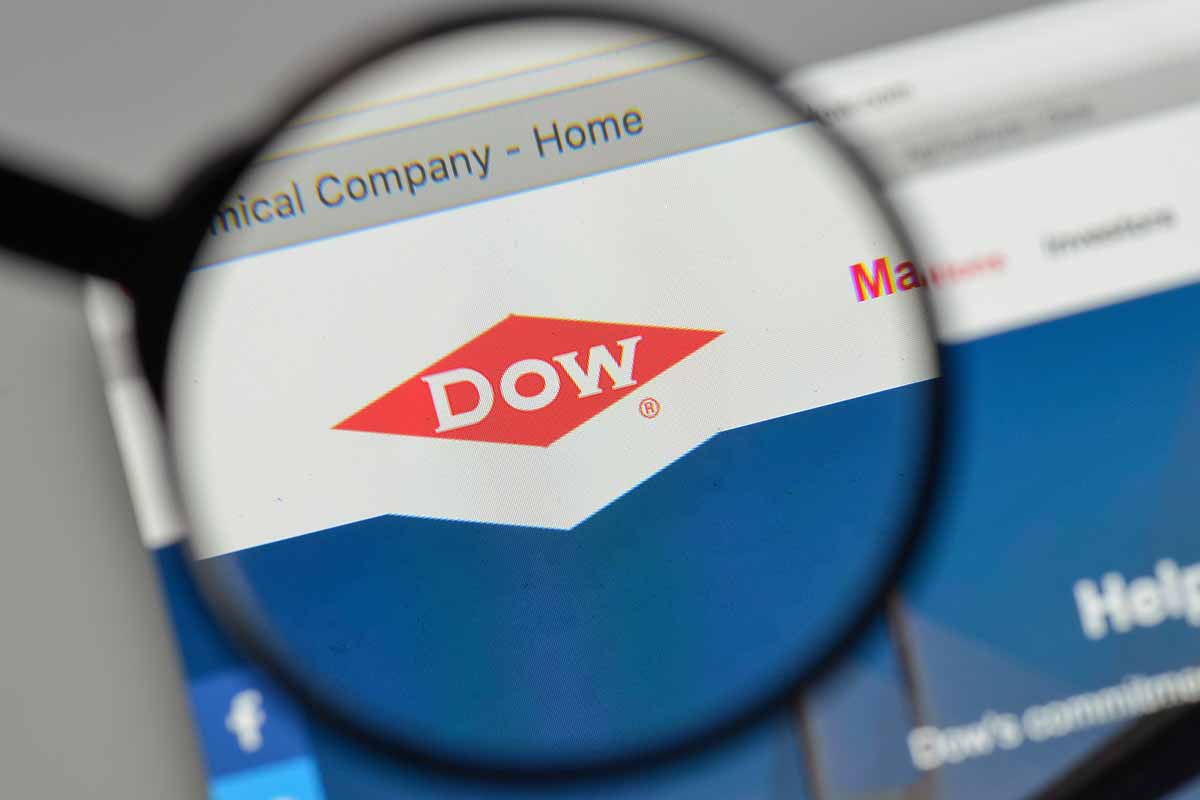
Dow will support both mechanical and chemical plastic recycling projects to pursue its sustainability goals. | Casimiro PT/Shutterstock
Dow has signed agreements to support a variety of recycling plant projects in the U.S. and Europe.
Building capacity
Dow and London-based Mura Technology announced they intend to build multiple chemical recycling facilities in the U.S. and Europe that would collectively add as much as 1.3 billion pounds of annual capacity.
In a July 21 earnings call, James Fitterling, Dow CEO, said the projects will add up to 600,000 tons of plastic recycling capacity by 2030, which is Dow’s largest commitment to scale chemical recycling to date.
Dow will purchase some of the feedstock that Mura produces at the plants. Fitterling said Dow’s capacity for circular polymer products will “expand significantly” due to the agreement.
“By working together, Dow and Mura will ensure plastic has a viable way to be re-circulated into global supply chains, helping to advance a circular economy for plastics and increase the value of plastic waste,” the press release said.
The plants will use Mura’s Hydrothermal Plastic Recycling Solution (HydroPRS) chemical recycling process, which the companies say can be used on all forms of plastic, including flexible and multi-layer applications.
Mura’s first plant using HydroPRS is under construction in the United Kingdom and is expected to be operational in 2023. It will supply Dow with a 100% recycled feedstock, the press release stated.
Dow also signed a letter of intent with Nexus Circular to buy the output of a newly constructed chemical recycling facility in Dallas.
The facility will process and convert over 26,000 tons annually, including hard-to-recycle plastics, using pyrolysis.
“Expanding our past, scaled success with Nexus to drive production of high-quality circular feedstocks, the new facility in Dallas marks an important step in meeting unmet market demand for circular plastics in Texas and other markets,” said Manav Lahoti, global sustainability director for hydrocarbons at Dow.
Finally, Dow announced it is investing in a “hybrid” recycling site in France, managed by Valoregen.
The project is slated to come on-line at the end of the first quarter of 2023. It will combine mechanical recycling and chemical recycling. Dow will be the main recipient of the plant’s post-consumer resin, which it will use to develop new plastic products marketed under its REVOLOOP product range.
Learn more in person
Eric Hartz, head of Nexus Circular, will be participating in a panel focused on the relationship between chemical recycling and local collection programs at the 2022 Resource Recycling Conference in August in Austin, Texas. See full session details and get registered today.
“Valoregen’s ultimate aim is to create a unique ecosystem capable of recycling all forms of plastic waste in one place,” a press release noted. “Both mechanical and advanced recycling technologies are complementary and essential to achieving Dow’s commitment to incorporate at least 100,000 tonnes of recycled plastics in its product offerings sold in the European Union by 2025.”
According to the press release, combining the two methods of recycling will increase energy efficiency and offer a yield greater than 80%.
“Mechanical recycling remains a significant element of Dow’s circularity strategy, including ensuring Valoregen can scale production to increase recycling in Europe,” the press release said. “Mechanical recycling currently accounts for the vast majority of plastics recycling, however rates are still too low.”
The investment was structured and led by Dow Venture Capital. The amount was not disclosed.
Aiming for targets
During the earnings call, Fitterling said those partnerships will supply about two-thirds of the recycled plastic Dow needs to meet its 2030 goal of 1 million tons recycled.
“Most of our brand owners have 30% PCR targets by 2030, and we’re seeing rapid growth in our Dow REVOLOOP’s brand of PCR containing materials year-over-year,” he said.
Howard Ungerleider, Dow president and chief financial officer, said on the call that the new agreements will make Dow the largest consumer of recycled plastic globally for polyethylene.
Fitterling added that sales of products containing recycled content are increasing dramatically. The REVOLOOP product brand is up about 140% compared to the first half of 2021.
“They’re commanding about $1,500 per metric ton and $2,200 per metric ton price premiums, so $1,500 for advanced recycled materials and $2,200 for bio-based products. And that’s compared to the fossil fuel and the virgin alternative,” he said.
A version of this story appeared in Plastics Recycling Update on July 26.